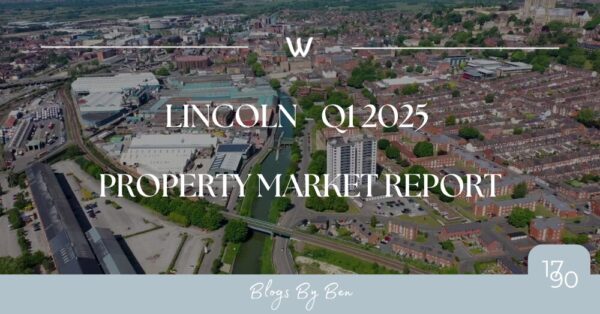Future legislation and the recent Budget have stirred considerable anxiety among landlords. The Chancellor’s decision to increase the additional Stamp Duty Land Tax (SDLT) from 3% to 5% for landlords purchasing additional properties initially suggested a grim outlook for the buy-to-let sector. This move, coupled with the introduction of the Renters’ Rights Act, which proposes to abolish Section 21 and effect a landlord database, poses new challenges for Lincoln landlords but also opens doors to new opportunities. Despite these hurdles, deeper market insights reveal reasons for optimism among property investors.
Taxation Changes: Assessing the Impact
The Tory and now Labour government’s policy changes towards the buy-to-let market have targeted the buy-to-let sector to cool what is perceived as an overheated property market. By raising the SDLT, the government intends to redirect investment opportunities towards first-time homebuyers priced out of the market. Although this policy aims to level the playing field, it has raised concerns among investors about shrinking profit margins and the overall attractiveness of buy-to-let investments.
Despite these concerns, maintaining the current (lower) capital gains tax rates has provided a buffer, easing investor anxiety and stabilising the investment climate. However, many Lincoln landlords remain cautious, aware that the stability of these rates can change as part of broader fiscal adjustments.
The Renters’ Rights Act: A New Renters Standard
The proposed Renters’ Rights Act will abolish Section 21 evictions, which have allowed landlords to terminate tenancies without fault. This change aims to offer greater security to tenants and ensure fair treatment across the housing sector. While this is a positive step for tenant rights, it requires landlords to adopt more rigorous property management and dispute resolution strategies, potentially increasing the cost and complexity of property management.
Moreover, the act will likely introduce stricter property standards and tenant engagement protocols. These regulations will compel landlords to improve the quality of their offerings and engage more transparently and effectively with their tenants. This shift could drive smaller or less committed landlords out of the market, potentially leading to a consolidation of property ownership within more professional hands.
Market Resilience: Lincoln’s Buy-to-Let Sector
Despite the challenges posed by increased taxation and regulatory changes, the buy-to-let market in Lincoln remains resilient. Rental demand in the city continues to grow, driven by its attractive location, relatively affordable housing compared to major urban centres, and its appeal among various demographics, including young professionals, families, and retirees.
An analysis of local rental data over the past five years shows stability and increased rental prices, suggesting that the market can absorb the impacts of taxation changes without a dramatic downturn.
The average rent in Lincoln in 2024 was £954 per month, a 42.2% increase from £671 per month in 2019.
Meanwhile, the number of Lincoln rental properties on the market has dropped by 19.5%, from 4,626 in 2019 (Jan to Oct 2019) to 3,724 in 2024 (Jan to Oct 2024). (Also, don’t forget that national house prices have risen by 25.7% in the last five years!).
One might say that’s all well and good, but what will this extra 2% stamp duty cost the average Lincoln landlord? The average price of a Lincoln buy-to-let property in 2024 is £149,950, meaning:
the average Lincoln landlord will only need to pay an additional £2,999, which is only 3.1 months’ rent.
Adapting Strategies for Landlord Success in Lincoln
To navigate this evolving landscape successfully, landlords in Lincoln may need to consider several strategic adjustments:
- Diversification: Landlords can spread risk and tap into varying demand streams by diversifying their Lincoln property portfolios to include a mix of residential types and targeting different tenant demographics.
- Reduction of Rent Arrears: A study by Denton House Research a couple of years ago showed that landlords who don’t use a letting agent to find them a tenant have a 272.5% greater chance of that tenant being two or more months in arrears (compared to those landlords who do use a letting agent).
- Enhanced Tenant Relations: Prioritising tenant satisfaction and retention can lead to longer tenancies, reducing turnover costs and maintaining steady rental income streams.
- Rent Protection: The removal of Section 21 will mean Lincoln landlords will only have Section 8 to remove tenants if they aren’t paying their rent or being antisocial. This could mean that if the tenant decides they don’t want to move, there could be a good 6 to 9 months of no rent (if not more). Therefore, you must take on rental insurance.
- Proactive Compliance: Staying ahead of 170+ pieces of legislation and 400+ regulatory orders to ensure your properties meet or exceed the required standards can prevent legal issues and attract Grade A tenants in a competitive market.
Final Thoughts for Lincoln Landlords
While the initial outlook for buy-to-let investments in Lincoln might seem daunting due to recent legislative and fiscal changes, the underlying market dynamics suggest a different narrative. The demand for quality rental properties will likely remain strong, providing opportunities for landlords willing to adapt to the new conditions. By adopting thoughtful strategies and leveraging the intrinsic strengths of Lincoln’s property market, landlords can continue to thrive.
The evolution of the buy-to-let market in Lincoln is not a signal of decline but rather an invitation to innovate and improve. As the sector matures, those who navigate these changes effectively will likely emerge stronger, proving that the buy-to-let market in Lincoln is not dying but evolving.



